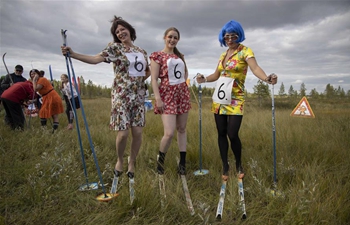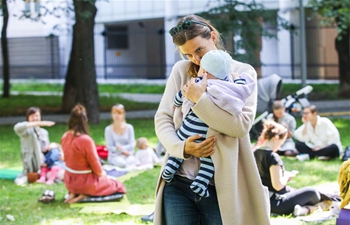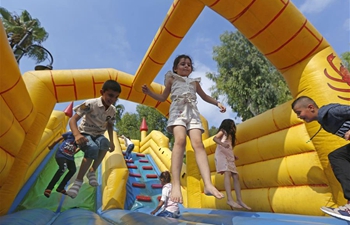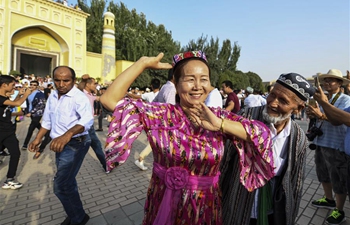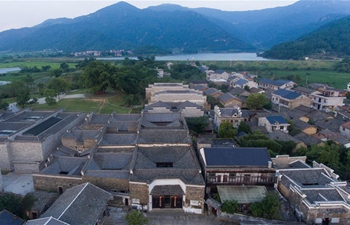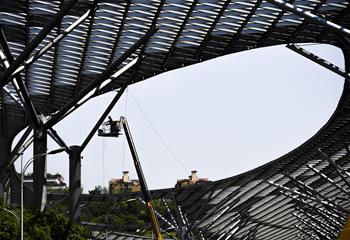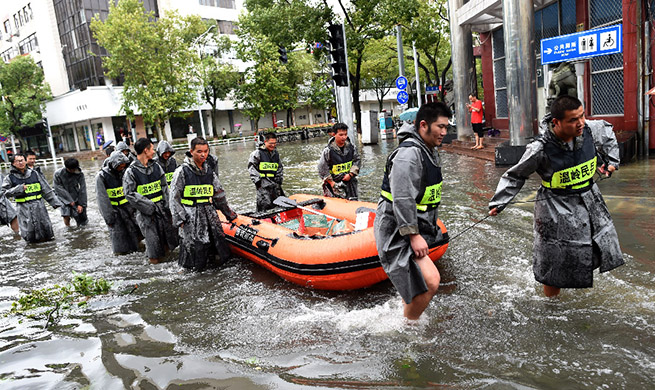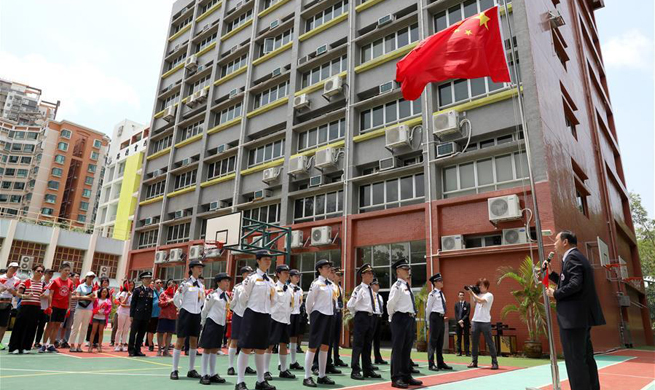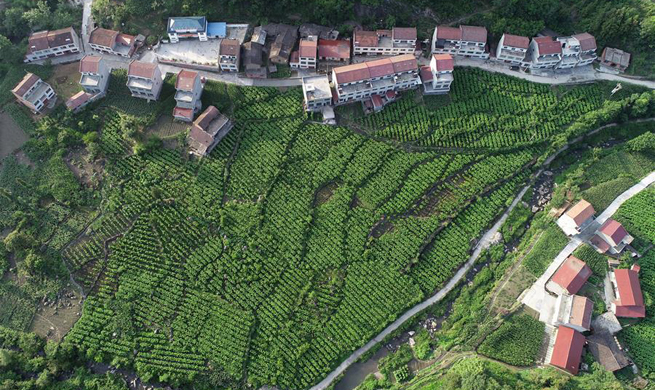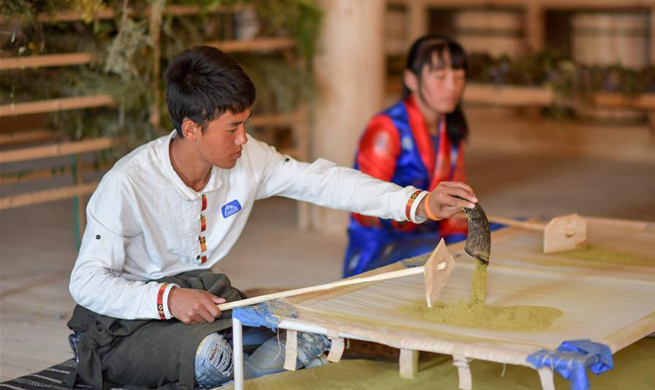MEDENINE, Tunisia, Aug. 12 (Xinhua) -- Wrapping up a 30-hour shift and ready to head for her dormitory, Yu Lamei, a Chinese obstetrician, bumped into a Tunisian woman with two babies in her arms.
Travelling all the way from her town to Tunisia's Medenine Habib Bourguiba Regional Hospital, the unexpected visitor, Hasna, was here again to express gratitude to Yu for saving her babies and herself.
Seven months ago, Yu delivered the twins, a boy and a girl, in an emergent cesarean section when Hasna was sent to hospital for early water breaking.
"I named my girl Lamia, which just sounds like your name, Lamei. I wish she could be a doctor when she grows up, saving lives as you do," Hasna told Yu.
Yu is one of the 30 professionals of the 23rd batch of Chinese medical workers sent to this North African country. Under the one-year program, the specialists, including internists, surgeons, obstetrician-gynecologists, radiologists and acupuncturists, were assigned to four hospitals located in the most remote and under-developed parts of Tunisia.
In sharp contrast with the hustle and bustle of patients in the public hospitals, there are not adequate qualified medical workers and equipment to match.
Teaming up with a few dozens of local doctors, Yu, along with her five Chinese colleagues, provides medical services in Habib Bourguiba Regional Hospital, the largest in the southeastern coastal governorate of Medenine and one of those built by the Chinese.
"Unlike in China, here we must be responsible for all the stages of each case, from ultrasound scan to wound suturing to recovery. Meanwhile, Chinese obstetricians are on call 24/7 in case of emergencies," Yu told Xinhua in an exclusive interview.
Chinese doctors dispatched to Tunisia work more than 80 hours per week on average. Some of them even rely on sleeping pills to free themselves from insomnia linked to long-time intense work.
"But I won't complain," said Xiao Ailan, another obstetrician working with Yu. "This is what I do and I love my job. The first crying of each and every baby I delivered with my hands is the best cure for all the tiredness."
Working as the only radiologist in the hospital and covering nearly all shifts, Yao Hongliang has still managed to prepare notes and give lectures about radiology, which has been a great help to his Tunisian colleagues in daily diagnosis and treatment.
"We may leave here in about three months. But I think it's our duty to pass on knowledge and experience which can stay for long," Yao said.
Since dispatching the first batch of Chinese medical workers to Tunisia in 1973, China has been striving to respond to both urgent and long-term needs of this Mediterranean country's health system, including sending over 1,000 doctors, building hospitals and clinics, and training local health personnel.
"I would describe the Chinese doctors as noble, outstanding and diligent, as they have done an excellent job and helped us a lot with their professionalism," said Taleb Temtem, head of Medenine Habib Bourguiba Regional Hospital.
"They have also brought Tunisian patients hopes of receiving better health services in this country," he added.
